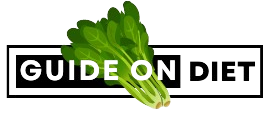Cottage cheese, a soft and versatile dairy product, is valued for its impressive nutrient profile. Known for its mild taste and creamy texture, cottage cheese is commonly included in balanced diets and is often recommended for people looking to improve their health. It’s not only rich in protein and calcium but also offers a variety of health benefits. Let’s take a closer look at its nutritional composition, potential health advantages, and factors to consider when adding cottage cheese to your diet.

Nutritional Composition of Cottage Cheese
Cottage cheese is low in calories and packed with nutrients, making it a great choice for healthy eating. Here’s a breakdown of the nutrients found in a standard 100-gram serving of low-fat (2%) cottage cheese, according to the USDA:
- Calories: 84
- Fat: 2.3g
- Sodium: 321mg
- Carbohydrates: 4.3g
- Fiber: 0g
- Sugars: 4.1g
- Protein: 11g
- Calcium: 111mg
These nutrient values make cottage cheese an appealing choice for those wanting a low-calorie, high-protein snack.
Carbohydrates in Cottage Cheese
Cottage cheese is low in carbohydrates, with most of its sugar content coming from lactose, a natural sugar found in dairy. With 4 grams of sugar per serving, it remains a low-glycemic food, making it a suitable choice for people who need to manage their blood sugar levels. However, if you buy flavored cottage cheese with added fruits or sweeteners, the sugar content might be higher. It’s always wise to check the labels, especially if you are concerned about your sugar intake.
Fat Content in Cottage Cheese
Cottage cheese comes in several fat percentages, allowing you to choose according to your dietary preferences. Low-fat cottage cheese provides around 2.3 grams of fat per serving, with a mix of saturated, monounsaturated, and polyunsaturated fats. The fat content can vary depending on the type you choose; for instance, full-fat versions contain higher levels of saturated fat, while low-fat or fat-free versions have reduced fat levels.
Protein Powerhouse
A major nutritional benefit of cottage cheese is its high protein content. With 11 grams of protein per 100 grams, it’s an excellent source for those looking to increase their protein intake. Protein is essential for building and repairing muscles, making cottage cheese popular among athletes and fitness enthusiasts.
Vitamins and Minerals
Cottage cheese provides various essential vitamins and minerals. It is rich in calcium, which is crucial for bone health, and also contains phosphorus, riboflavin (vitamin B2), and vitamin B12. It’s worth noting that cottage cheese is relatively high in sodium, providing around 14% of the recommended daily intake per serving. However, low-sodium options are available for those who are watching their salt intake.
Health Benefits of Cottage Cheese
Thanks to its nutrient-dense profile, cottage cheese offers several health benefits:
Could Help Lower the Risk of Chronic Diseases
Cottage cheese and other dairy products contain essential nutrients that can help reduce the risk of chronic diseases. Research suggests that dairy foods are beneficial in meeting daily nutritional requirements and may help prevent conditions like hypertension, heart disease, and type 2 diabetes. Including dairy as part of a balanced diet can contribute to long-term health and well-being.
Supports Bone Health
Calcium and phosphorus, both abundant in cottage cheese, are essential minerals for maintaining strong bones. Studies have shown that consuming dairy products can help reduce the risk of osteoporosis and other bone-related conditions. Dairy is particularly valuable for women, who are at a higher risk of osteoporosis, as it helps in maintaining bone density and strength.
May Lower Risk of Colorectal Cancer
The calcium content in cottage cheese has also been linked to a reduced risk of colorectal cancer. Calcium plays a protective role in gut health, which can lower the likelihood of developing colon cancer. Studies indicate that a diet high in dairy products like cottage cheese may provide some level of protection against this disease.
Provides Anti-Inflammatory Benefits
Dairy products, including cottage cheese, may have anti-inflammatory effects that help reduce the risk of inflammation-related diseases, such as heart disease and type 2 diabetes. Managing inflammation is essential for overall health, and incorporating anti-inflammatory foods like cottage cheese into your diet can be beneficial.
Aids in Weight Management and Muscle Building
The high protein and low-calorie content of cottage cheese make it a great food for weight management. Protein promotes satiety, which can help prevent overeating, and its amino acids support muscle repair and growth. Including cottage cheese in your diet can help maintain a healthy weight and support a fitness-focused lifestyle. Research has shown that incorporating dairy into a balanced diet can enhance weight loss efforts, especially when combined with exercise.
Potential Allergies and Intolerances
For some individuals, dairy products can trigger allergic reactions or lactose intolerance. Symptoms of a dairy allergy might include hives, swelling, and difficulty breathing, while lactose intolerance symptoms are typically digestive issues such as bloating, gas, and stomach cramps. People with dairy allergies or lactose intolerance should avoid cottage cheese or opt for lactose-free varieties to avoid discomfort.
Types of Cottage Cheese
There are several varieties of cottage cheese to choose from, catering to different preferences and dietary needs. Options vary by fat content (such as low-fat, full-fat, or fat-free) and curd size (small or large curds). Cottage cheese also comes in flavored options, including versions with fruit or added sweeteners. When selecting a flavored variety, be mindful of added sugars, which can increase the calorie content.
Storage and Food Safety
Cottage cheese is a dairy product that spoils easily, so it should be stored correctly. Keep it in the refrigerator with the container tightly sealed to stay fresh. It’s best to consume cottage cheese before the expiration date indicated on the package. Although most cottage cheeses do not freeze well, dry cottage cheese without liquid can be frozen, if necessary.
How to Incorporate Cottage Cheese into Your Diet
Cottage cheese is highly versatile and can be used in a variety of meals. Here are some ways to add it to your diet:
- As a Snack: Enjoy plain cottage cheese as a quick, protein-packed snack.
- With Fruit: Pair cottage cheese with fresh fruit like berries, pineapple, or melon for a sweet and nutritious snack.
- In Smoothies: Blend cottage cheese into smoothies to add creaminess and a protein boost.
- On Toast: Spread cottage cheese on whole-grain toast and top with avocado or tomato for a healthy breakfast or lunch.
- In Salads: Add cottage cheese to salads for extra texture and protein.
Final Thoughts
Cottage cheese is an excellent addition to a balanced diet, especially for those seeking a low-calorie, high-protein food. It supports bone health, provides essential nutrients, and can contribute to weight management. With multiple varieties and a range of health benefits, cottage cheese is a convenient and nutritious choice for anyone looking to improve their diet. However, if you have a dairy allergy or lactose intolerance, be cautious and consider lactose-free options.
[Read more : Yogurt: Calories, Nutrition Facts, and Health Benefits]
***************************
Frequently Asked Questions
Q1. What is cottage cheese?
Answer : Cottage cheese is a soft, white, and mild cheese made from curdled milk. It’s low in fat and high in protein, making it a popular choice among health enthusiasts.
Q2. Is cottage cheese a good source of protein?
Answer : Yes, cottage cheese is an excellent source of protein. One cup contains around 25 grams, making it ideal for muscle repair and growth.
Q3. Can I eat cottage cheese if I’m lactose intolerant?
Answer : Cottage cheese does contain lactose but in lower amounts than some other dairy products. Some lactose-intolerant people may tolerate it, or they can opt for lactose-free versions.
Q4. Does cottage cheese aid in weight loss?
Answer : Yes, its high protein and low-fat content help you feel full longer, making it useful in weight management diets.
Q5. Is cottage cheese good for bone health?
Answer : Cottage cheese is rich in calcium, which supports bone health and helps prevent osteoporosis.
Q6. How can I include cottage cheese in my meals?
Answer : You can eat it as a snack, mix it in smoothies, spread it on toast, add it to salads, or use it as a topping for fruits.
Q7. Is cottage cheese suitable for vegetarians?
Answer : Yes, as it’s made from milk, it’s suitable for vegetarians (though not for vegans).
Q8. Does cottage cheese support gut health?
Answer : Some varieties contain probiotics, which are beneficial for gut health.
Q9. Is cottage cheese low in carbs?
Answer : Yes, it’s relatively low in carbohydrates, making it suitable for low-carb diets.
Q10. Are there any downsides to eating cottage cheese?
Answer : It can be high in sodium, so people watching their salt intake should choose low-sodium options.

2 thoughts on “Cottage Cheese: A Nutritional Powerhouse with Multiple Health Benefits”